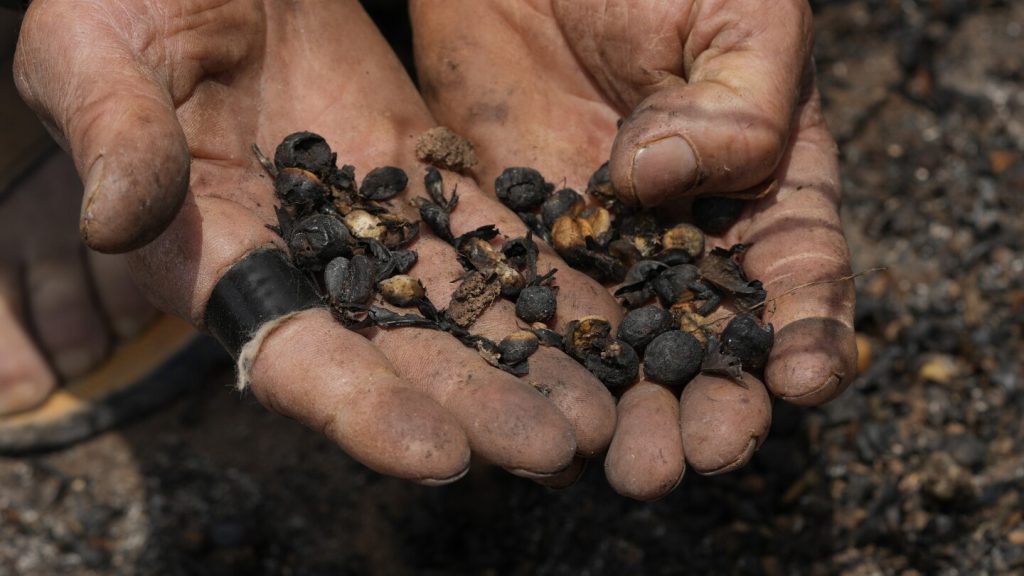Brazil, the world’s largest coffee producer, is currently facing its worst drought in over seven decades, coupled with above-average temperatures. Silvio Almeida, a coffee farmer in Caconde, has experienced a significant decrease in his coffee harvest due to the water scarcity. The ongoing drought is already impacting the start of the 2025/2026 season, with potential supply shortages driving up global coffee prices. Farmers like Almeida are struggling as adverse climate conditions are causing flower buds to die before blooming, resulting in compromised crops for the upcoming season.
The recent harvest season in Brazil ended flat from the previous year, with exports surging, but the effects of the drought are already being felt in the coffee industry. Vietnam, the second-largest coffee producer, is also experiencing heat and drought, further exacerbating concerns about potential supply shortages. Felippe Serigati, a coordinator in agribusiness, highlighted the risk of a smaller coffee harvest due to adverse weather conditions, which is already reflected in the higher trading prices for coffee in international markets.
Global coffee prices have been steadily rising in recent years, influenced by factors such as higher demand in Asia and adverse weather conditions affecting major coffee-producing countries like Brazil and Vietnam. Drought, frost, and wildfires have damaged significant portions of coffee plantations in Brazil, leading to concerns about the overall coffee harvest. Billy Roberts, a senior economist, emphasized the need for consistent rainfall to help coffee producers recover from the damage caused by the adverse weather conditions.
In addition to the impact of the ongoing drought, uncontrolled wildfires have been devastating protected areas and farms across Brazil. In Caconde, wildfires have destroyed hectares of land, including native forests, pastures, and coffee plantations. Farmers like João Rodrigues Martins have lost everything in the fires, with years of cultivation reduced to ash. Despite the challenges, Martins remains resilient, finding strength in faith as he navigates the difficult reality of rebuilding his coffee plantation and livelihood.
The devastation caused by the drought and wildfires in Brazil’s coffee-growing regions highlights the vulnerability of farmers and the coffee industry to the effects of climate change. With supply shortages and rising prices in international markets, the future of coffee production in Brazil and other major coffee-producing countries remains uncertain. Smallholder farmers like Almeida and Martins face significant challenges in rebuilding their plantations and ensuring the continuity of their livelihoods in the face of environmental challenges and market fluctuations.
As the coffee industry grapples with the impacts of climate change and natural disasters, stakeholders are closely monitoring the situation in major coffee-producing countries like Brazil and Vietnam. The resilience of coffee farmers, like Almeida and Martins, in the face of adversity underscores the importance of sustainable practices and climate resilience in the coffee industry. Moving forward, efforts to mitigate the effects of climate change and support smallholder farmers will be crucial in ensuring the long-term sustainability of the global coffee supply chain.


